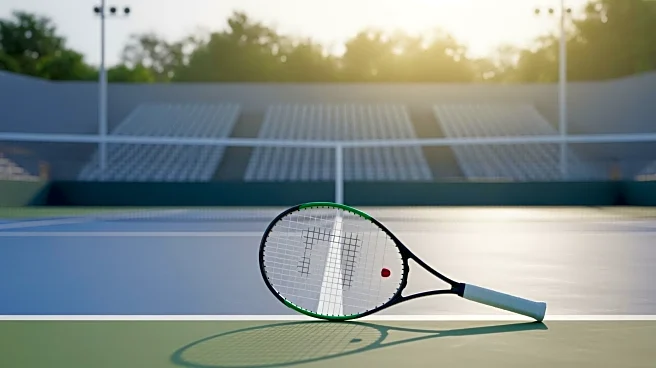What's Happening?
Ons Jabeur, a prominent tennis player, has publicly shared her struggles with depression, attributing it to the demanding tennis schedule. Jabeur, known as 'The Minister of Happiness,' revealed that the intense
schedule has taken a toll on her mental and physical health. She has called for a reduction in the duration of ATP Masters 1000 tournaments, which have expanded to 12 days with 96-player draws. Jabeur's comments come after she took an indefinite break from tennis to focus on her well-being. She has criticized the current schedule, stating that it is overwhelming and detrimental to players' health. Jabeur's remarks highlight a broader issue within the tennis community, where several players, including Naomi Osaka and Paula Badosa, have faced similar challenges.
Why It's Important?
Jabeur's revelations underscore a growing concern about the mental health of athletes in high-pressure sports. The tennis schedule, with its extended tournaments and back-to-back events, is increasingly seen as unsustainable. This situation affects not only the players' mental health but also their physical well-being, leading to injuries and burnout. The call for reform is significant as it could lead to changes in how tournaments are structured, potentially improving the quality of life for players. If the tennis authorities heed these calls, it could set a precedent for other sports to prioritize athletes' mental health.
What's Next?
The tennis community may see increased pressure to address these concerns, with potential discussions on revising the tournament schedule. Stakeholders, including the Women's Tennis Association (WTA), may need to engage with players to find a balance that maintains the sport's competitiveness while safeguarding players' health. Jabeur's foundation and academy could also play a role in advocating for these changes, providing a platform for further dialogue.
Beyond the Headlines
This development highlights the broader issue of mental health in sports, challenging the perception of athletes as invulnerable. It raises ethical questions about the responsibility of sports organizations to protect their players. The situation could lead to a cultural shift in how mental health is perceived and addressed in professional sports.









